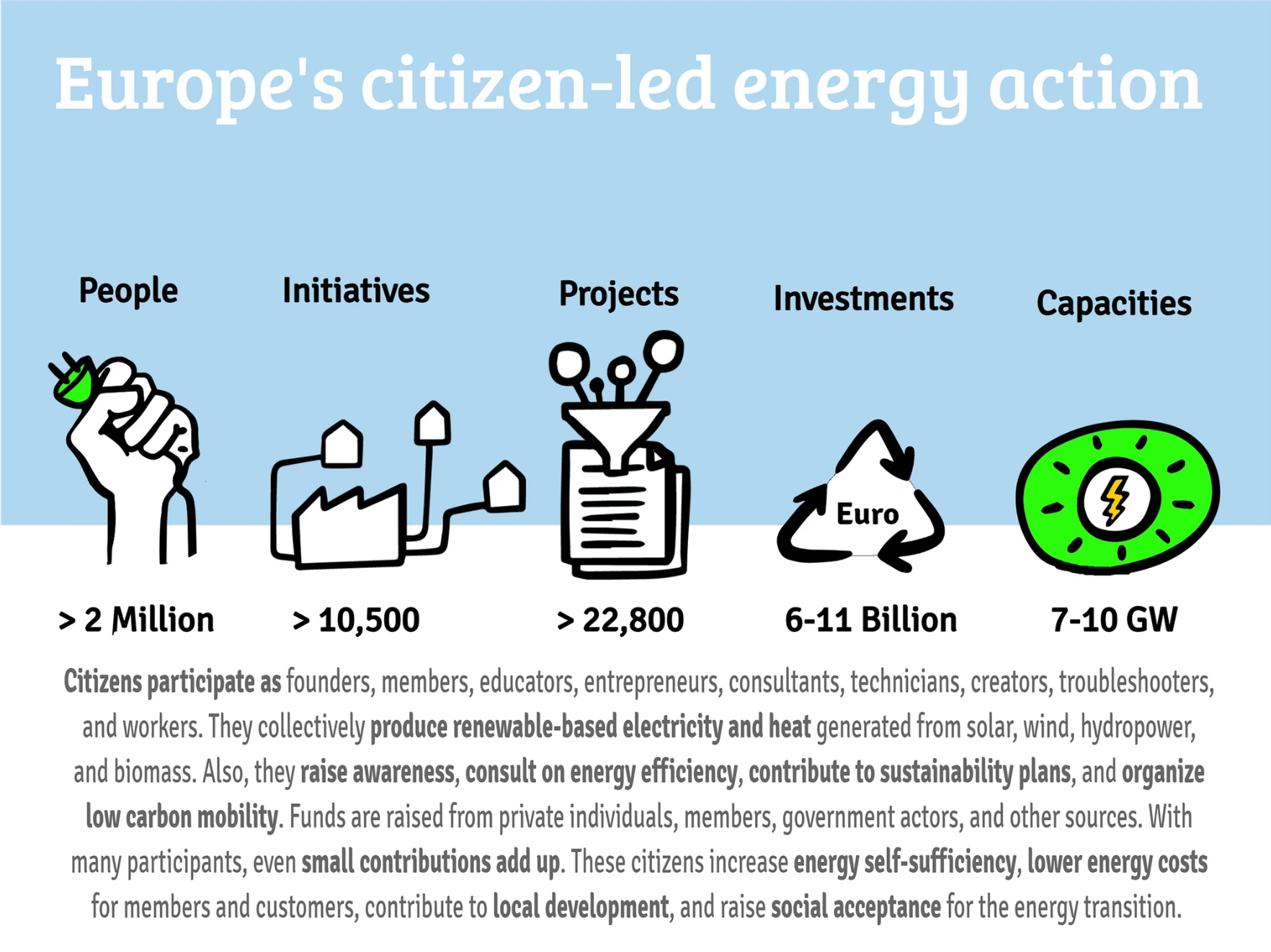Thousands of projects and initiatives undertaken by over two million citizens from 30 European countries have contributed to the transition to renewable energy, as per an analysis published by Nature in their Scientific Reports. These collective efforts, backed by investments of between 6.2 and 11.3 billion euros, underscore the significant role of community action in decarbonizing Europe.
While the European energy system experiences a significant transition towards renewable energy and decarbonization, the contribution of citizen-led efforts, specifically energy cooperatives, remains widely unrecognized.
Between 2000 and 2021, Valeria Schwanitz and her team measured the impact of citizen-led energy initiatives on the shift towards low-carbon energy across 30 European countries. They assessed the number of initiatives, people involved, specific energy projects, renewable energy installations, and total funds invested.
During this period, the authors identified 10,540 citizen-led initiatives aimed at promoting low-carbon energy, including a renewable energy community in Borutta, Italy, and an eco-village community in Sweden. These initiatives involved the implementation of 22,830 specific projects, such as the installation of wind turbines and solar panels on local buildings, as well as efforts to encourage behavioral change and climate action within communities. Overall, the authors estimate that over 2 million people participated in these activities, with Germany and Denmark accounting for the largest number of participants at 391,500 and 306,650, respectively.
 Source: Scientific Reports, images freepik
Source: Scientific Reports, images freepik
Furthermore, the study authors have estimated that citizens have invested between 6.2 and 11.3 billion euros in energy projects, this means that individuals have invested up to 5,700 euros each. The renewable energy installations that were established had a total capacity of 7.2 to 9.9 gigawatts and generated between 8,500 and 11,700 kilowatt-hours per year, per person participating in the initiatives. This output is approximately sufficient to cover the electricity demands of an average household in Europe.
In conclusion, from the results of the study, it is evident that the development of accurate statistics on the impact of citizen efforts on the energy transition in Europe necessitates the implementation of better data and reporting standards, according to the authors.